
That the heroic role of women during the Second World War should be commemorated in a new exhibition at the Biggin Hill Memorial Museum seems particularly appropriate. Most famous for its role as one of the key fighter stations during the Battle of Britain, RAF Biggin Hill also saw the award of three Military Medals to WAAFs who were stationed there during the battle. Elizabeth 'Joan' Mortimer, Elspeth Henderson and Helen Turner were all recognised for their brave actions for staying at their posts during the Luftwaffe attack on the airfield on 30 August 1940 which killed 39 people.
However, the new exhibition is as much about the unsung female heroes of wartime as it is about those who were formally recognised for their bravery.
Constructed around the old St George's Chapel (originally the station church and a memorial to those who lost their lives flying from the airfield) the museum opened in 2015 and focusses on the human experience of war and of life during wartime at and around what is arguably the most famous fighter station in the world. With its immersive and interactive displays, that story is told through a remarkable collection of exhibits and artefacts tracing the station's fascinating story through war and peace. Now, that story has been enhanced by the new exhibition Women & War: Hidden Heroes of World War II.
One of the special features of the exhibition is a focus on the astonishing work and bravery of the female pilots of the Air Transport Auxiliary (ATA), with 168 of these remarkable women delivering fighters, bombers and training aircraft to airfields up and down the country during the Second World War. One of these female pilots was the late Jackie Moggridge, and now her smart ATA uniform and flying logbooks (which record no less than 1,438 delivery flights of 89 different aircraft types) are central to the Biggin Hill exhibition.
この記事は History of War の Issue 111 版に掲載されています。
7 日間の Magzter GOLD 無料トライアルを開始して、何千もの厳選されたプレミアム ストーリー、9,000 以上の雑誌や新聞にアクセスしてください。
すでに購読者です ? サインイン
この記事は History of War の Issue 111 版に掲載されています。
7 日間の Magzter GOLD 無料トライアルを開始して、何千もの厳選されたプレミアム ストーリー、9,000 以上の雑誌や新聞にアクセスしてください。
すでに購読者です? サインイン
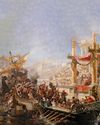
NAUMACHIA TRUTH BEHIND ROME'S GLADIATOR SEA BATTLES
In their quest for evermore novel and bloody entertainment, the Romans staged enormous naval fights on artificial lakes
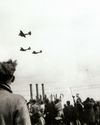
OPERATION MANNA
In late April 1945, millions of Dutch civilians were starving as Nazi retribution for the failed Operation Market Garden cut off supplies. eet as In response, Allied bombers launched a risky mission to air-drop food
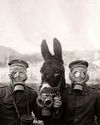
GASSING HITLER
Just a month before the end of WWI, the future Fuhrer was blinded by a British shell and invalided away from the frontline. Over a century later, has the artillery brigade that launched the fateful attack finally been identified?
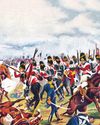
SALAMANCA
After years of largely defensive campaigning, Lieutenant General Arthur Wellesley went on the offensive against a French invasion of Andalusia
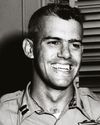
HUMBERT 'ROCKY'VERSACE
Early in the Vietnam War, a dedicated US Special Forces officer defied his merciless Viet Cong captors and inspired his fellow POWs to survive
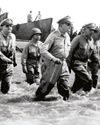
LEYTE 1944 SINKING THE RISING SUN
One of the more difficult island campaigns in WWII's Pacific Theatre saw a brutal months-long fight that exhausted Japan’s military strength
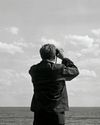
MAD DAWN
How technology transformed strategic thinking and military doctrine from the Cold War to the current day
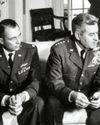
BRUSHES WITH ARMAGEDDON
Humanity came close to self-annihilation with the Cuban Missile Crisis, Broken Arrows’ and other nuclear near misses
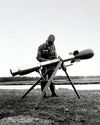
THE DEADLY RACE
How the road to peace led to an arms contest between the USA and USSR, with prototypes, proliferation and the world’s biggest bomb
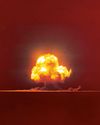
THE MANHATTAN PROJECT
Einstein, Oppenheimer and the race to beat Hitler to the bomb. How a science project in the desert helped win a war